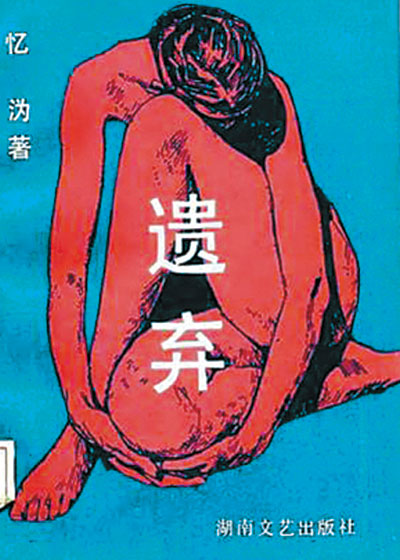|

Zhu Yuan
IS the concept of eternity important for an individual? Considering the shortness of a human life, is the pursuit of eternity absurd? Actually, it is the shortness of life that makes the goal of seeking eternity understandable because it expands what life can accommodate.
For 49-year-old author Xue Yiwei, the way to seek his own immortality is to interpret his perception and interpretation of life by writing one book after another and at the same time make a single book better by rewriting it time and again.
The peculiar and dramatic fate of his first novel “Desertion” over the past 24 years may give expression to how this novelist has been putting into practice his goal of seeking meaning in his life. He has done this by constantly experimenting with the characters in his novels to make his stories as good and thought-provoking as possible.
The novel “Desertion,” which is about the life of an amateur philosopher, was first published in 1989. It had just 15 readers in the eight years after its publication, according to Xue’s estimation.
But after reviews by professors and critics were published, a new edition of the book turned out to be a success in 1999. Its revised edition was published in May last year and was well received. It was praised by critics as one of the top 10 novels of 2012 during Shenzhen’s Reading Month.
It might be because of the change most intellectuals had gone through in their perception of the world and themselves. There was a trend in the 1990s of professors and government employees quitting their stable jobs to do business. Joining the gold rush during that period was known as xiahai (jumping into the sea). At that time, very few people had time to read anything, let alone a book full of philosophical thoughts.
The hero of the novel, Tu Lin, was going against the zeitgeist when the book was first published. He also chose to quit his job as a government employee and even leave home. But instead of joining the gold rush, he leads the life of a hermit because he finds it hard to adapt to the chaos of the world. His inability to adapt has resulted in his being deserted.
Yet at the same time, the compulsion to write what was on his mind was too strong for him to be concerned with the material world, where man’s desire for pleasure has eviscerated the true meaning of his existence.
Xue once said a writer should be more than just a slave to language. He or she should also be a servant to the heroes or heroines in the novels. Tu takes the same attitude toward writing as Xue does.
Xue said Tu’s experience in life and his perception of the world around him was quite similar to himself when he was in his 20s. Xue also chose to escape from the material world and retreat into his own world of writing.
Tu says in the novel that writing can make anything possible, and the only limiting thing is language. To Tu, reality is like a wall that narrows down the space of existence and makes people apathetic.
Literary critic Liu Zaifu categorizes Xue’s novels as a kind of detached literature as opposed to the work of China’s literary Nobel laureate Mo Yan. The latter, Liu commented, embraces life with his narratives while the former views life as an outsider. The former has such a strong feeling of hunger, which has strongly motivated him to write, while the latter exhibits a strong sense of absurdism. In other words, what Mo strongly feels in his subconsciousness is fear of surviving harsh living conditions. Instead, Xue is concerned with the lack of a sense of belonging for a meaningful existence, which bothers the heroes or heroines of his novels.
Similar philosophical thinking can be found in almost all of Xue’s fictions. He had published five books by last year. He says that he tries to make readers think about life from a new perspective by reading his books.
|

